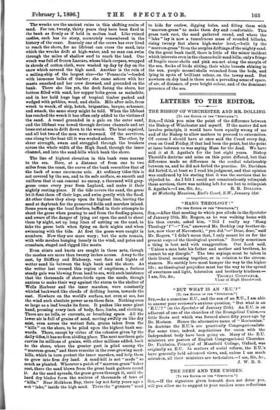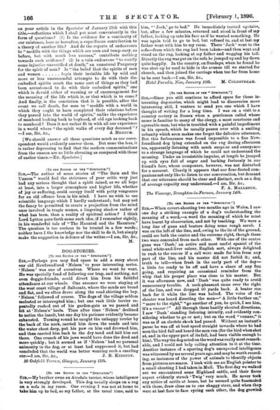THE SEEN AND THE UNSEEN. [To THE EDITOR 07 TEE
" SPECTATOR."] Sin,—If the signature given beneath does not deter you, will you allow me to suggest to your readers some reflections
on your article in the Spectator of January 25th with this title,—reflections which I shall put most conveniently in the form of questions ? (1) Is the evidence for a continuity of our existence, here or hereafter, a superfluous contribution to a theory of another life ? And do the reports of endeavours to "meddle with the things which are seen and temporary, as before, but with much less success," contribute nothirg towards such evidence? (2) Is a vain endeavour "to rectify some injustice unrectified at death," an unnatural Purgatory for the spirit of man? Is "the belief that the spirits of men and women begin their invisible life by wild and more or less unsuccessful attempts to do with their dis- embodied spirits much the same sort of things as they had been accustomed to do with their embodied spirits," one which is devoid either of warning or of encouragement for the meaning of the life which is, or that which is to come ? And finally, is the conviction that it is possible, after the event we call death, for men to "meddle with a world in which they ought to have completed their relations before they passed into the world of spirits," unlike the experience of manhood looking back to boyhood, of old age looking back to manhood ? Does it not rather fit in with all our experience in a world where "the spirit walks of every day deceased " ?
[We should answer all these questions much as our corre. spondent would evidently answer them. But none the less, it is rather depressing to find that the modern communications from the unseen are so little elevating as compared with those of earlier times.—En. Spectator.]







































 Previous page
Previous page